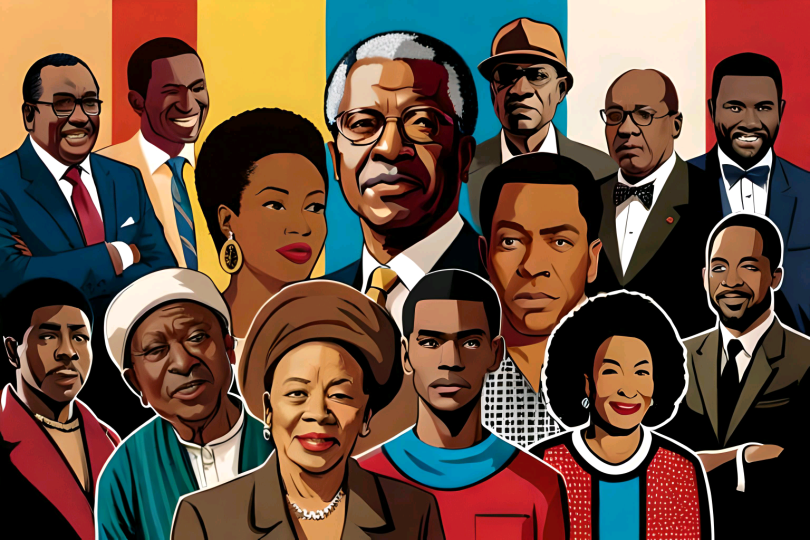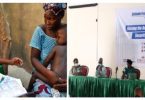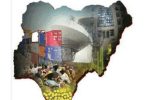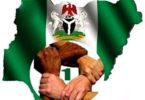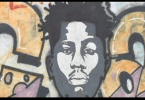Nigeria’s journey towards independence and self-determination was marked by stories of both the well-known, and obscure faces that contributed to it. Celebrated nationalists such as Nnamdi Azikiwe, Obafemi Awolowo, Ahmadu Bello, and more – we know their stories fairly well. But along the way were many others who fought for the country to attain freedom, and some paid a huge price. We will briefly mention Nigeria’s unsung heroes of the past and present in this article.
We will briefly mention past unsung heroes, because they deserve recognition for helping to birth the African giant of the future. They were no accidents; and posterity will not forget them. We will go further to give credit to just some of the innumerable unsung heroes of Nigeria currently helping to shape the nation. We must recognize that these individuals are leading the way with God-sent actions, to pave way for a better Nigeria.
These are the people who inspire others to believe in humanity. And that a glorious, great Nigeria – a nation built by God, is very possible in the near future.
Nigeria’s PAST Unsung Heroes – We Doff Our Hats
Individuals who are ready to sacrifice their personal liberties for the sake of helping their fellow countrymen are rare. They should not be treated with a passing mention – they must be honored. Here are a number of unsung heroes of Nigeria’s fight for sovereignty that are not usually covered in history books.
Mary Okezie and The Aba Women of 1929
The famous Aba Women of 1929 were a 25,000 strong gathering of Igbo women who went on a public protest for two months. Indeed they were true but unsung heroes of colonial Nigeria.
They protested against the impending census by the colonial government. Historians point out that the census was a prelude to a planned imposition of direct taxes on market women. Furthermore, an establishment of local courts and warrant chiefs to enforce it was imminent. This was in addition to existing taxes already imposed by the British government on the menfolk.
Though these women were badly harassed by the British forces, their resistance forced some warrant officers to eventually resign. And the colonial government dropped its plans to impose tax on the women. The bravery of the Aba women will never be forgotten.
Mary Okezie on her part, was a teacher at the Anglican Mission School in Umuocham, Abia state. She supported the cause of the rioters; but as a civil servant, she could not participate directly. It was reported that Okezie submitted a memo to explain the reason for the women’s riot to the Commision of Inquiry. She eventually formed the Ngwa Women’s Association in 1948, in order to promote the welfare and education of women in the community.
Adegoke Adelabu
Late Adegoke Adelabu, a famous Ibadan politician, was widely known throughout the Western region (and indeed Nigeria). He died in 1958 at the age of 43. But he left strong footprints in Nigeria’s History as one of the foremost fighters for Nigeria’s independence.
Adelabu was both outspoken and controversial. He was an active member of the National Council of Nigerian Citizens (NCNC) under the leadership of Dr. Nnamdi Azikiwe. Over time, he was sworn in as a member of the Western Regional House of Assembly. Along the line, he served as Minister of Social Services and Mineral Resources (while still in the House of Representatives).
Adelabu is strongly credited for ideas that gave birth to the Mass Literacy Scheme, the Indigenization Policy (of 1957), and the River Basin Development.
Ladipo Solanke
Ladipo Solanke was a Yoruba radio broadcaster, who started out as an extraordinary political activist while studying in London. From joining the Union of the Students of African Descent, he eventually led the West Africa Students Union (WASU). He fought for the cause of African students, and ensured that they secured hostel accommodation in London. By the time Solanke left, the student union continued the fight to end colonial domination.
He went on to teach Yoruba language to Nigerian students in London (who then were not much interested in African culture). By the time he became a broadcaster, Solanke fervently spoke against colonial rule in Yoruba language. He also toured the West African region to get relief materials for West African students. Sadly, he died in 1958 due to cancer – barely missing out on Nigeria’s independence.
Ernest Ikoli
Bayelsa-born journalist, Ernest Ikoli, co-founded the Nigerian Youth Movement (NYM) in 1934 alongside two other strong nationalists – H.O. Davies and Samuel Akinsanya. He later became president of NYM. He teamed up with other nationalists to fight doggedly for Nigeria’s independence.
Ikoli’s passion drove him to lead a 1000-strong contingent of fighters to attack the trading posts of the Royal Niger Company. This move led to the British-Nembe war.
Mukoro Mowoe
Mowoe was a political activist of the 1920s, who was appointed the President-General of the Urhobo Progress Union (founded in 1931). The Urhobo Progress Union later went ahead to set up the Urhobo College in Effurun. He became a member of the first Western Regional Assembly in 1946.
He deployed his acumen and resources as a businessman to work towards betterment of the Niger Delta, during British colonial rule. The colonial rulers found a formidable opponent in him.
Eniola Soyinka (and Funmilayo Ransome-Kuti)
Who else could have birthed the literary giant and Nobel Laureate, Wole Soyinka – except ANOTHER GIANT? That outstanding mother was Eniola Soyinka – who co-founded the Egba Women Union alongside Mrs. Funmilayo Ransome-Kuti (mother of Afrobeats legend, Fela Anikulapo-Kuti).
Both women were political activists – who worked hard to educate the illiterate Egba women, and weaken the British colonial control altogether. While they were still alive, they strove to help the women understand their rights as citizens. The strong roles in ending colonial control was undeniable (though they were never truly honored).
Gambo Sawaba
From the Northern extract, Hajiya Gambo Sawaba rose to become a very strong female politician and philanthropist. She insisted that the authorities recognize the roles and rights of women. Right from the age of 16 years, she fought for the establishment of full voting rights for women. Gambo also canvassed to stop child marriage, as well as securing education for girls. To an extent, she succeeded.
But before achieving this feat – Gambo Sawaba was publicly flogged, and jailed 16 times. She had her hair publicly shaved with a broken bottle, and her only daughter was given to her in-laws. Nevertheless, she refused to succumb to the ruling elite. The British colonial authorities controlled Northern Nigeria through the System of Indirect Rule at that time. The ruling party of the North was the Northern People’s Congress (NPC), who saw her as a rebel to be curbed.
She was appointed deputy chairman of Great Nigeria People’s Party (GNPP). Again she served as leader of the national women’s wing of the Northern Element Progressive Union (NEPU) – the major opposition party of the NPC. She died in 2001.
Nigeria’s Unsung Heroes of the Modern Day – A Big Salute
Ameyo Adadevoh
The brave martyr that saved the entire Nigeria from the spread of the deadly Ebola virus of 2014 was Doctor Ameyo Adadevoh. Adadevoh had worked for 20 years as the Lead Consultant Physician and Endocrinologist at First Consultants Medical Center in Ikoyi. She identified and isolated Patrick Sawyer – an immigrant Liberian-American, who was the very first Ebola virus carrier that entered Nigeria.
Before then, 20 persons who had been exposed to Sawyer had contracted the virus; and 8 of them altogether did not survive it. Adadevoh volunteered to cater for Sawyer, but eventually contracted the virus and died in August 2014. Her alertness and prompt move to inform the Nigerian healthcare authorities, helped them to quickly contain the spread of the virus. With that in place, Nigeria was declared Ebola-free within 93 days.
Bishop Matthew Kukah
The couragoeus and outspoken Bishop of the Sokoto Catholic Diocese, Rt. Reverend Bishop Matthew Hassan Kukah is an indelible part of Nigeria’s modern history. Born and raised in the conservative North meant that he faced constant threats to his life and liberty. Nevertheless, Kukah continuously stood firm in his advocacy for human rights, justice and responsible governance in Nigeria. He is seen as one of Nigeria’s heroes of democracy.
He has served as a member of Nigeria’s Truth and Reconciliation Commission; secretary of the Political Reform Conference for Nigeria; member of Nigeria’s Electoral Reform Committee, amongst other national duties. A distinguished cleric and a man of conscience, Kukah constantly challenged the federal authorities in defence of the truth. He has been accused severally as a rebel (amongst other labels) by the Presidency. But he refused to give up in his quest for a better society till this day.
Babagana Zulum
Professor Babagana Zulum is a rare case of conscientious political leadership in Nigeria. Zulum was the erstwhile governor of Borno State in 2020. He helped to relocate the internally displaced victims (IDPs) of Boko Haram insurgency to their local government areas. Before then, the insurgency had lasted for over a decade. The Boko Haram fighters had attacked and ravaged several towns in Borno, Adamawa and Yobe states.
Zulum visited several IDP camps in Maiduguri and neighboring towns, even going as far as Niger and Chad republics. He visited these camps more than 10 times, in spite of attacks on his convoy. As at 2019, the National Emergency Management Agency (NEMA) reported that over 40 official and non-official IDP camps were existing. And the governor declared that they were no longer sustainable.
Through the efforts of governor Zulum, the IDPs were given a choice between moving to new housing units in Auno town, or staying in rented apartments. The state government supported each head of household (whether male or female) with N150,000. And married women were offered N50,000 to start petty trading or other suitable business.
Professor Dora Akunyili
Dora Akunyili, a graduate of Pharmacy from the University of Nigeria Nsukka (UNN), witnessed her diabetic sister die from fake Insulin injection. Perhaps this was the inspiration for her dogged fight against fake drugs.
Akunyili rose through several positions as a pharmacist in University of Nigeria Teaching Hospital (U.N.T.H) Enugu; lecturer in UNN; and Consultant Pharmacologist at UNN College of Medicine. She ended up as Zonal Secretary of Petroleum Special Trust Fund (P.T.F.). Then in 2001, she was appointed the Director-General of the National Agency for Food and Drug Administration and Control (NAFDAC).
Akunyili faced many criticisms and resistance in her fight against the proliferation of fake drugs in the Nigerian market. Twice she escaped assassination attempts on her life. Nonetheless, she helped to weaken the circulation of fake drugs – until the market experienced a decline of 90 percent.
She took up the cabinet position of Minister of Information and Communication in 2008. From there, she kicked off the ‘ReBrand’ campaign. She also won a total of 930 awards – the highest ever received by any Nigerian. Sadly, Nigeria lost Dora Akunyili to cancer in 2014.
Aisha Yesufu
The iconic figure of a woman in hijab with a defiant fist in the air became popular during the #endSARS protests of 2020. That figure was none other than Aisha Yesufu – a Nigerian socio-political activist who joined the protests despite police harassment. Yesufu is reported to have led over a hundred protest marches in Nigeria.
She was at the forefront of the protest against police brutality at the premises of the National Assembly in Abuja. She had also joined others to champion the ‘Bring Back Our Girls’ movement, following the kidnapping of 219 Chibok school girls by Boko Haram insurgents in April 2014. She has been tagged the Nigerian ‘Statue of Liberty’.
She has fervently joined others to demand for equity, justice, respect for democracy and the rule of law, amongst other constitutional rights of Nigerians. Yesufu has definitely faced persecution from security agents and government agencies.
A Bayero University graduate of Microbiology, the businesswoman and activist is also the Founder of Citizens Hub (a non-profit organization).


